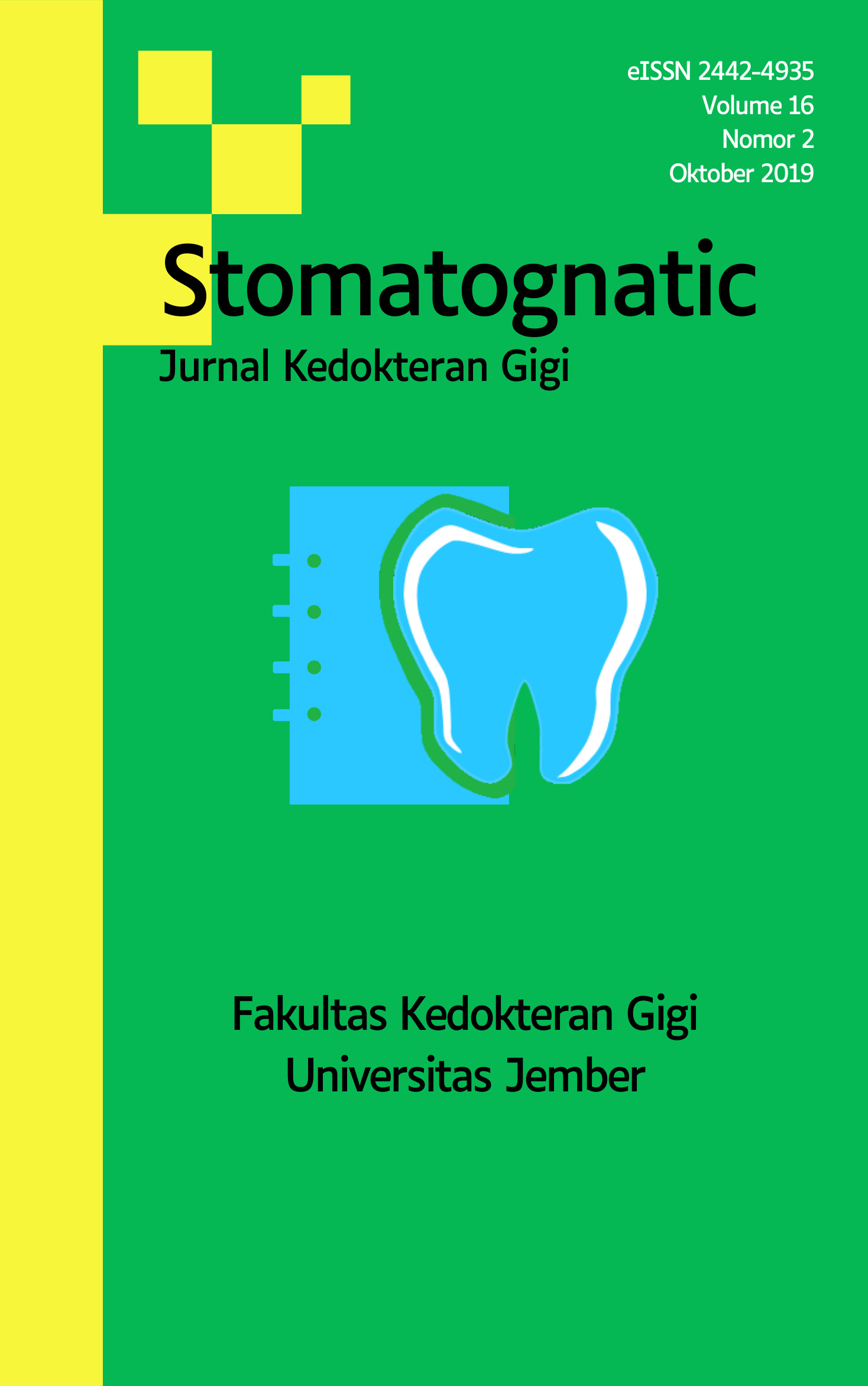Pengaruh Bisphenol-A (BPA) terhadap Kadar Insulin Pada Hepar Tikus Wistar Jantan
DOI:
https://doi.org/10.19184/stoma.v16i2.23089Abstract
Bisphenol-A (BPA) is a synthetic chemical substance in the form of monomers which is commonly used as plastic constituents. BPA is often found in household appliances, food and beverage containers, and in dental sealants and acrylic base dentures. BPA can contaminate or enter the human body mostly through oral route or swallowed along with food consumed. It is known that BPA exposure through the oral route can cause several diseases, and one of them is endocrine and metabolic problems, which is Diabetes Mellitus. This study was to analyze the decrease of insulin levels in the liver of male Wistar rats after being exposed by BPA. 18 adult male Wistar rats were divided into 3 groups. Group I (control 1) was not given any treatment, only acclimatized for 7 days. Group II (control 2) was treated with sterile aquadest orally for 28 days. Group III (treatment group) was given oral BPA treatment with a dose of 20 mg / kg body weight for 28 days. After sacrificed, the hepar was homogenated and the insulin level was determined by ELISA. Data were analyzed with One Way Anova test and LSD test. Bisphenol-A (BPA) with a dose of 20 mg/kgBB exposed for 28 days can reduce on hepar insulin levels in adult male Wistar rats.







